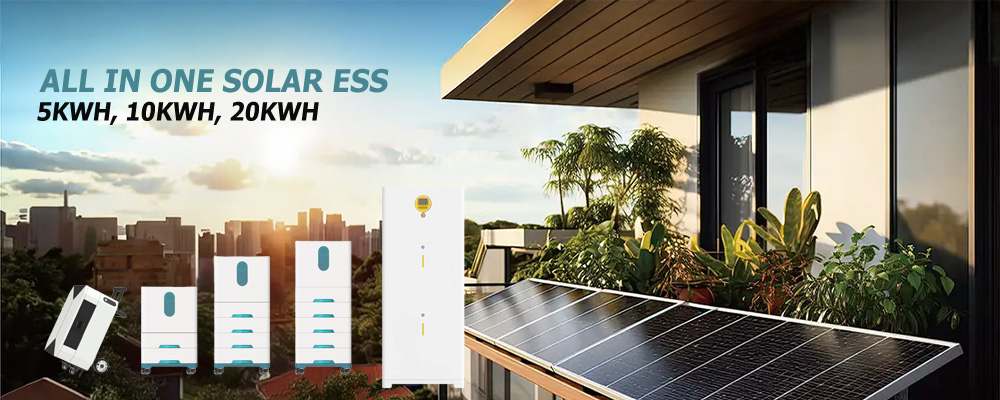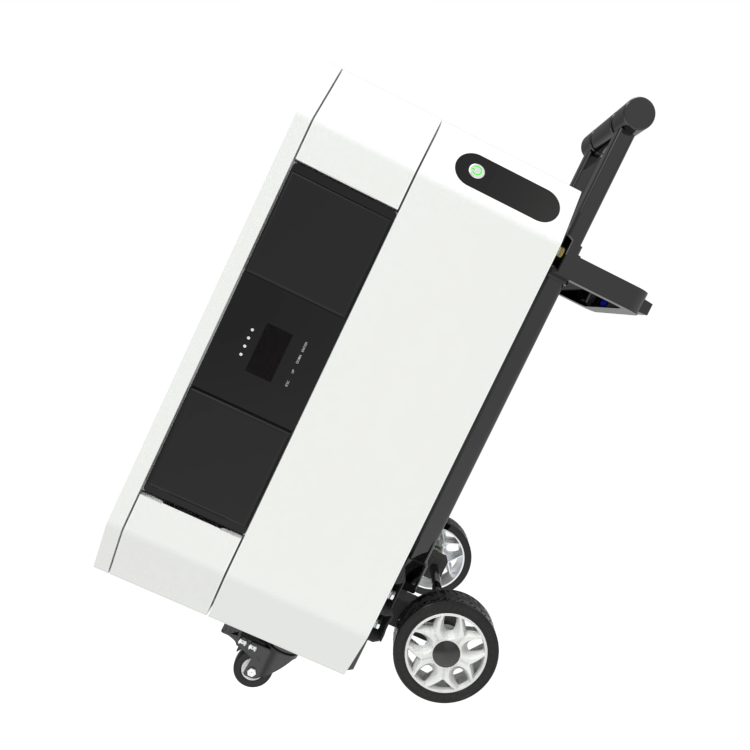Summarize
The rising demand for sustainable energy solutions has led many homeowners to consider home solar batteries as a way to reduce their electricity bills, increase energy independence, and minimize their carbon footprint. A home solar battery stores excess energy generated from solar panels, providing you with a reliable and cost-effective backup during power outages and peak demand periods. In this guide, we will examine the benefits, considerations, and practical realities of home solar battery systems to help you determine if this energy solution aligns with your needs.
Understanding Home Energy Storage Systems
A home solar battery is a critical component of a Home Energy Storage System (HESS). It stores electricity generated by solar panels and allows you to use it later, particularly when solar energy production is low, such as at night or on cloudy days. The battery integrates with your solar panel system and other energy components to ensure efficient energy use, giving homeowners the ability to reduce reliance on the grid.
The home solar battery typically includes an inverter (to convert DC power from the battery to AC power used in your home), a charge controller (to manage the flow of energy into and out of the battery), and a monitoring system to track performance and energy consumption.
The Benefits of a Solar Battery Storage System
The decision to install a home solar battery can have numerous benefits. Here are the top reasons why you might want to consider adopting this technology for your home:
1. Reduced Electricity Bills
By using stored solar energy instead of drawing from the grid during peak hours, a home solar battery can help you significantly lower your electricity costs. This is especially valuable in regions with time-of-use (TOU) billing, where electricity prices vary depending on the time of day.
2. Increased Energy Independence
A home solar battery provides you with the ability to use solar energy whenever you need it. In the event of a power outage, your home solar battery acts as a backup, supplying power to essential appliances like refrigerators, lights, and medical devices. This independence is invaluable, particularly in areas prone to natural disasters or power disruptions.
3. Environmental Benefits
By maximizing the use of solar energy stored in your home solar battery, you reduce your reliance on fossil fuels, helping to lower your carbon footprint. This contribution to cleaner energy makes your home more sustainable and eco-friendly.
4. Grid Support and Revenue Streams
Some homeowners participate in grid services programs, where they can sell excess energy stored in their home solar battery back to the grid during peak demand periods. This not only supports the grid but also provides an additional revenue stream, especially in areas with incentives for solar energy.
5. Increased Home Value
Homes equipped with solar panels and home solar batteries tend to have higher resale values. Prospective buyers are often attracted to homes that offer lower energy costs and reliable backup power during outages, making these systems an appealing investment.
How to Choose the Right Home Solar Battery
Selecting the best home solar battery for your needs requires careful consideration of several factors. Here’s what you should consider when making your choice:
| Key Consideration | Details |
|---|---|
| Energy Consumption | Review your historical electricity usage to estimate your daily needs. |
| Solar Panel System Size | The size of your solar system will affect the amount of excess energy available for storage. |
| Battery Capacity | Measure battery capacity in kilowatt-hours (kWh); larger batteries offer more storage but at a higher cost. |
| Power Output | Power output, measured in kilowatts (kW), indicates how many appliances the battery can run at once. |
| Depth of Discharge (DoD) | The higher the DoD, the more energy you can use before recharging the battery. |
| Battery Chemistry | Lithium-ion batteries are common for residential systems, offering higher energy density and longer lifespans. |
Choosing the right home solar battery will depend on your energy needs, the size of your solar panel system, and your budget. Make sure to select a battery that is compatible with your solar system to ensure seamless integration.
Understanding Solar Battery Costs and Installation
The cost of a home solar battery can vary widely depending on several factors, such as capacity, battery chemistry, brand, and the complexity of installation. Here’s what you should expect:
Battery Size: Larger batteries are more expensive but offer more storage capacity.
Battery Chemistry: Lithium-ion batteries, while more expensive than lead-acid alternatives, generally offer better performance and longer lifespans.
Installation Costs: Installation costs will depend on factors such as your location and the complexity of the installation process.
Permitting Fees: Local regulations may require additional fees for permits and inspections.
Installation typically involves several stages, including a site assessment, system design, permitting, installation, and inspection. Be sure to ask for a breakdown of all associated costs when seeking quotes from multiple installers.
Real-World Scenarios: Is a Home Solar Battery Right for You?
Let’s explore some real-world use cases to understand how a home solar battery might benefit you:
Scenario 1: High Electricity Costs
A family living in California installs a 10 kWh home solar battery to store excess solar energy generated during off-peak hours. This allows them to avoid high peak-hour electricity rates and reduces their monthly energy bills significantly.
Scenario 2: Frequent Power Outages
A homeowner in Florida installs a 13.5 kWh home solar battery to ensure backup power during hurricanes. The battery allows them to keep essential appliances running during outages, providing peace of mind during extreme weather conditions.
Scenario 3: Maximizing Solar Energy Use
A homeowner with an existing solar panel system adds a home solar battery to store the excess energy generated during the day. This increases their solar energy self-consumption to over 90%, reducing their reliance on the grid and eliminating electricity bills during most of the year.
Scenario 4: Remote Off-Grid Living
A homeowner in a remote area installs both a solar panel system and a home solar battery, enabling them to live completely off-grid. The battery stores enough energy to meet their needs without being connected to the main electrical grid.
Conclusion
Adopting a home solar battery is a significant step toward achieving energy independence, reducing your environmental footprint, and saving money on electricity bills. Whether you want to maximize your solar energy usage, prepare for power outages, or participate in grid services programs, a home solar battery system offers practical benefits for homeowners.
Before installing a home solar battery, assess your energy consumption, research available incentives, and consult with a qualified installer to ensure you choose the best system for your home. By doing so, you’ll be making a long-term investment that not only pays off financially but also contributes to a cleaner, more sustainable future.



